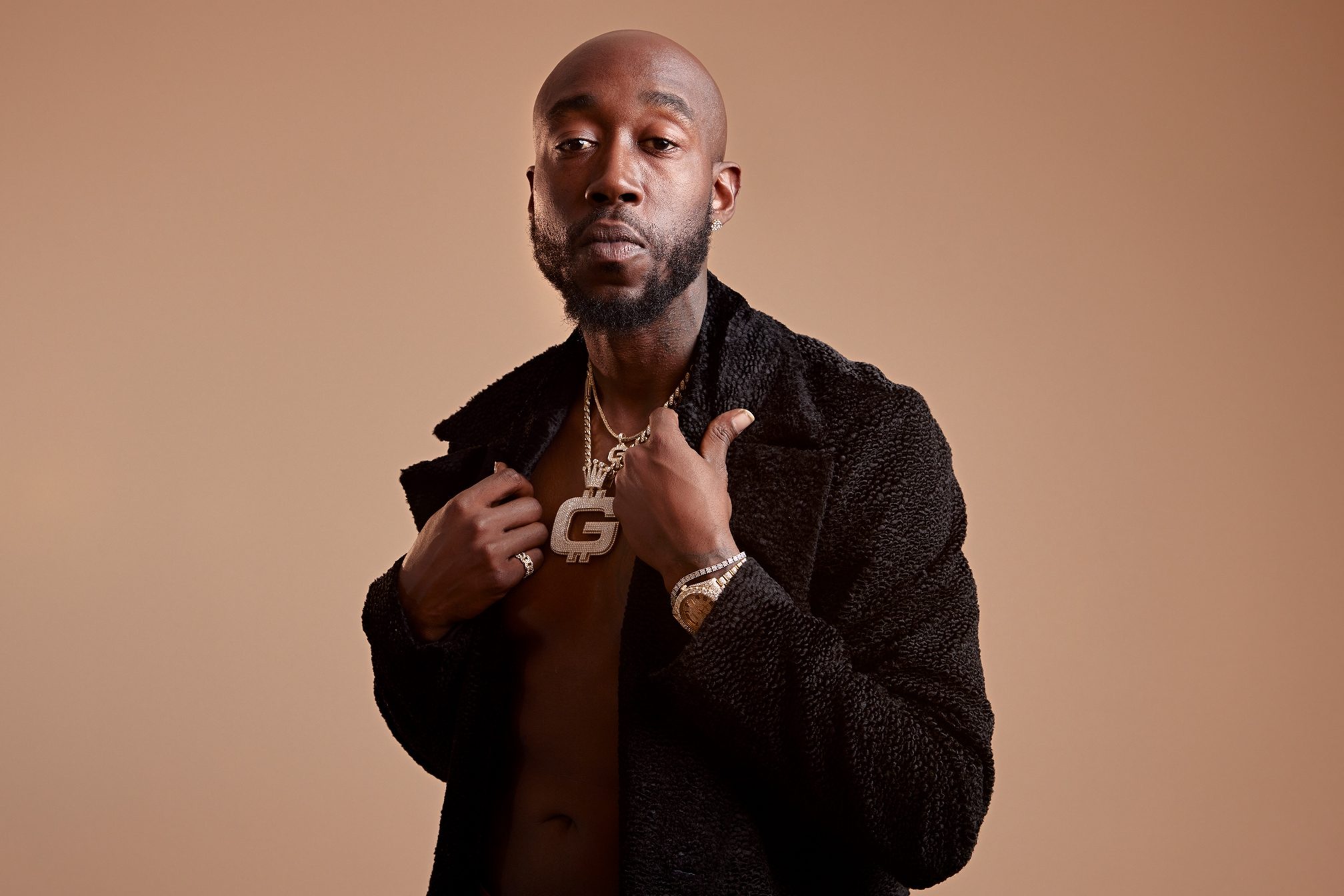 Features
Features
Freddie Gibbs is conquering hip hop on his own terms
GRAMMY or no GRAMMY, Freddie Gibbs is triumphant. Nicolas-Tyrell Scott speaks to the Indiana-hailing rapper about working with Madlib, Nipsey Hussle, and the upcoming 'best produced album of his career'
After a carnivorous 16 years sculpting an inning from the depths of rap's underbelly, Freddie Gibbs, whose grin could light up even the darkest of black holes, is buoyant about his recent ‘Best Rap Album’ GRAMMY loss last month. “I’m coming off of the GRAMMYs week, you know I’m blessed, a lot of things are going well right now,” he says. The extent of Gibbs’ gratitude is felt somehow, beyond our Zoom call, from across the Atlantic.
Even when addressing his victor — rap behemoth Nas — he continues to demonstrate an instant aura of positivity. “If you’re gonna lose to somebody, you’re gonna want to lose to Nas,” he shrugs, evidently motivated by the loss. “Nas is a hall of fame MC. If anything it just shows how great I am to lose to such an MC. I could’ve lost to Macklemore or something.”
It’s 10:AM in Los Angeles, and 6:PM in London, but somehow, both of us, in our respective regions, find the combined strength for a mutual laugh at what has become one of the most cringeworthy ‘Best Rap Album’ award wins in recent history, which, at the time, sparked a race and institutional debate.
Despite getting it “wrong” that year and after a turbulent 2020, involving multiple claims of corruption — one by popstar The Weeknd and former CEO Deborah Dugan (Deborah described the Recording Academy as a "boys' club" and voting "ripe with corruption") — Gibbs is still able to find faith in the Recording Academy's ecosystem, as it pertains to his contemporary career at least. “I don’t really feel no way because [loads of] people trash the GRAMMYs when they don’t get nominated, but then they wear the tuxedos and shit when they do get nominated. At the end of the day it was good for my career, so I’m gonna participate of course.”

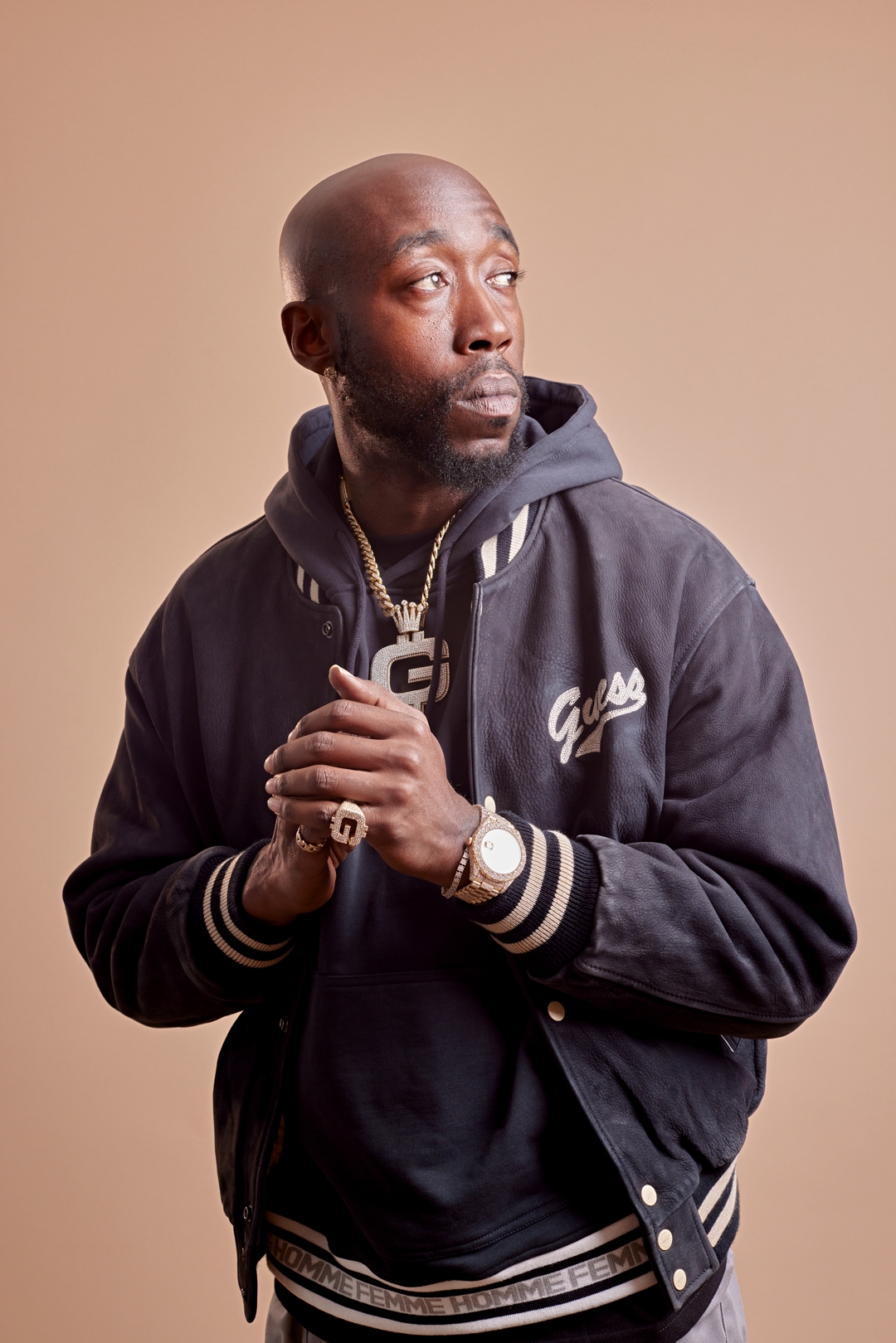
Gangsta Gibbs’ optimism has inevitably led to him straddling the music industry's crest in 2021 — it’s acted as his kryptonite. But for the now 38-year-old trouvère, this practice was a profound necessity that predates both his music career, and his life in Los Angeles. It’s fused with both confidence and God. Combined, all three elements act as a “guide” to where he sits today, as he prepares to go to the shooting range following this call, and aided in his eventual pathway out of Indiana in 2004.
Read this next: The Best 20 Hip Hop Songs of the Mid-1990s
“I had a very vivid imagination. I saw myself succeeding at a young age,” Gibbs proclaims, wistfully reflecting on his former residence and birthplace of Gary, Indiana. “God had to show me exactly what [my career] was, but that confidence, that feeling, I carry with myself at the best of times and the worst of times. You have to be successful.”

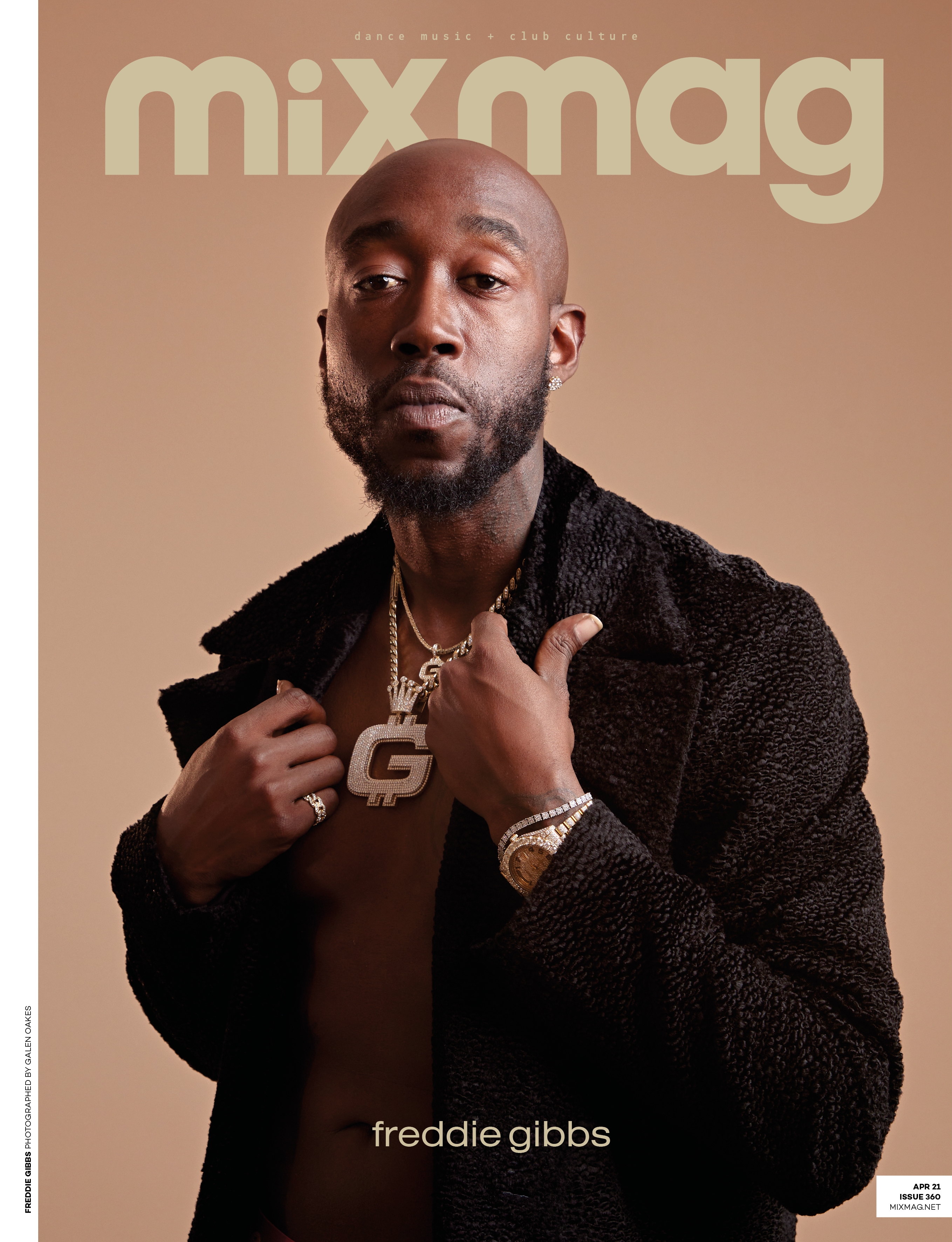
Upon further reflection, a shortlist of more tangible figures spring to mind. “Shit, Michael Jordan, Mike Tyson, you know they are inspirations, guys like that. When Mike Tyson lost that Buster Douglas fight, I cried like a baby. [They] are like my spirit animal.” The former figure takes precedence on '1985', the introduction track of 'Alfredo', last year's collaborative album from Gibbs and The Alchemist. “1985, Michael Jordan, bitch, I travel with a cocaine circus,” he raps nonchalantly, using the cocaine-infused double entendre to hone in on Jordan’s tunnel vision amidst an allegedly rebellious Chicago Bulls team, and his former trade as a narcos.
In the recent FX series Hip Hop Uncovered, some of hip hop’s foundational figures over time, such as Deb and Bimmy Antney, depicted the harsh realities of drug dealing and using hip hop as a vehicle out of the systemic and volatile cocaine industry, pedalled by America’s federal government in the 1980s. Although Gibbs is adamant that dealing was not due to his familial circumstances or political climates— he’s quick to point out at least having food on the table and clothes on his back — he did, like the Antneys had decades before him, use hip hop as a vehicle for more in life.
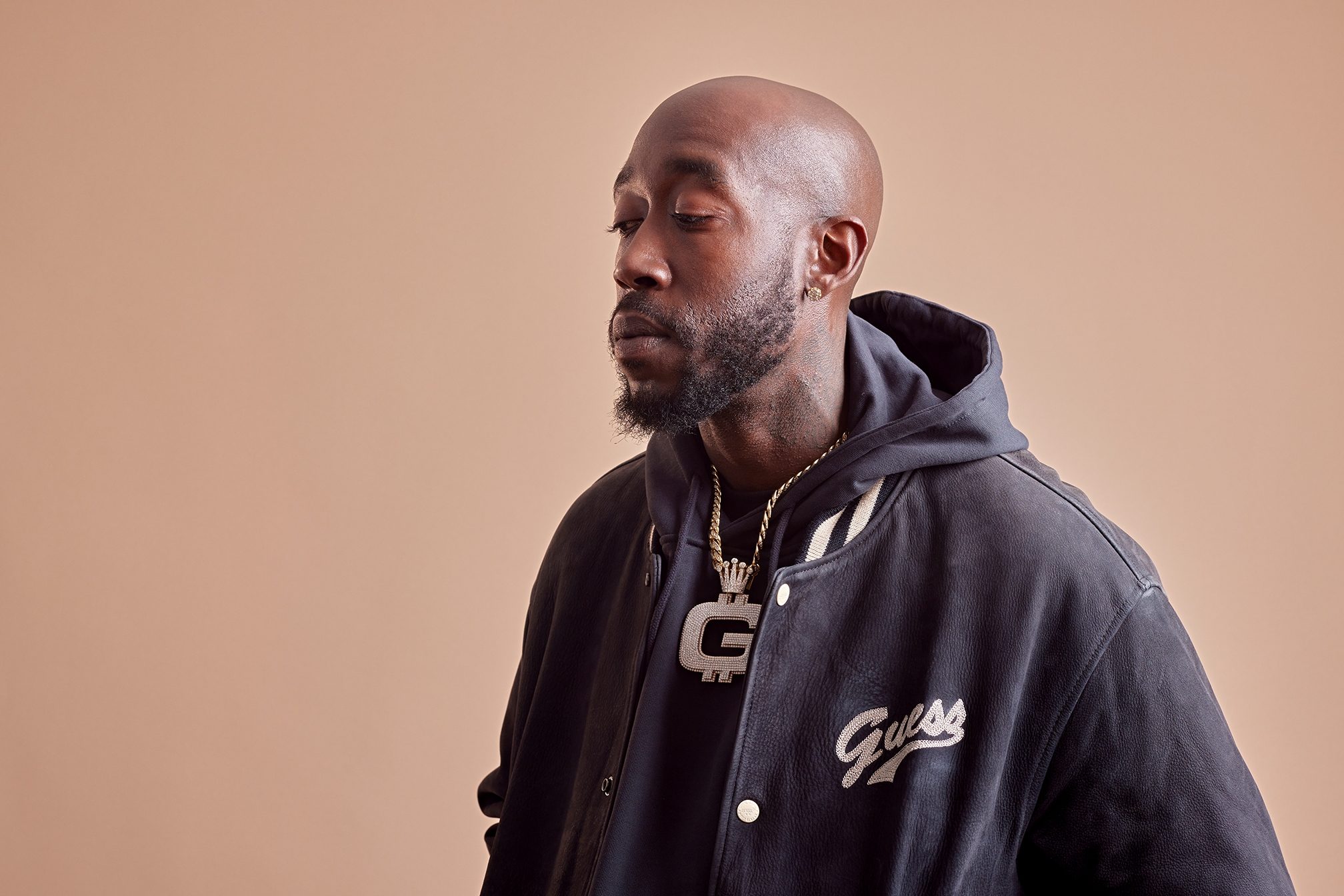
Adjusting his black hoodie, with an intentional and urgent look painted on his face, Gibbs explains the necessities at the time to change his surroundings. “I just always wanted to expand to something much more, much bigger. But when I was younger, I wanted everything now and I had a problem with authority, so I let [drugs] take a hold of me because of my wants and needs.” The late 90s and early 2000s saw the juggernaut wordsmith attempt university — he dropped out after one year at Ball State University — and the military, before his submergence in both rap and drugs became more truculent.
Read this next: Ty and the history of UK rap
Freddie Jamal Tipton believes he was used as a vehicle; he’s quick to credit the deity again for being his witness, and “not the judge” in this aspect of his life. “It was a fast-track to getting somewhere, but it’s also a fast-track to prison and a fast-track to the grave,” he concludes. “Judgement Day is yours and the Lords. I’m not telling people they should go and sell drugs. Don’t do it. A lot of rappers will tell you to go do it, but they haven’t really done it.”
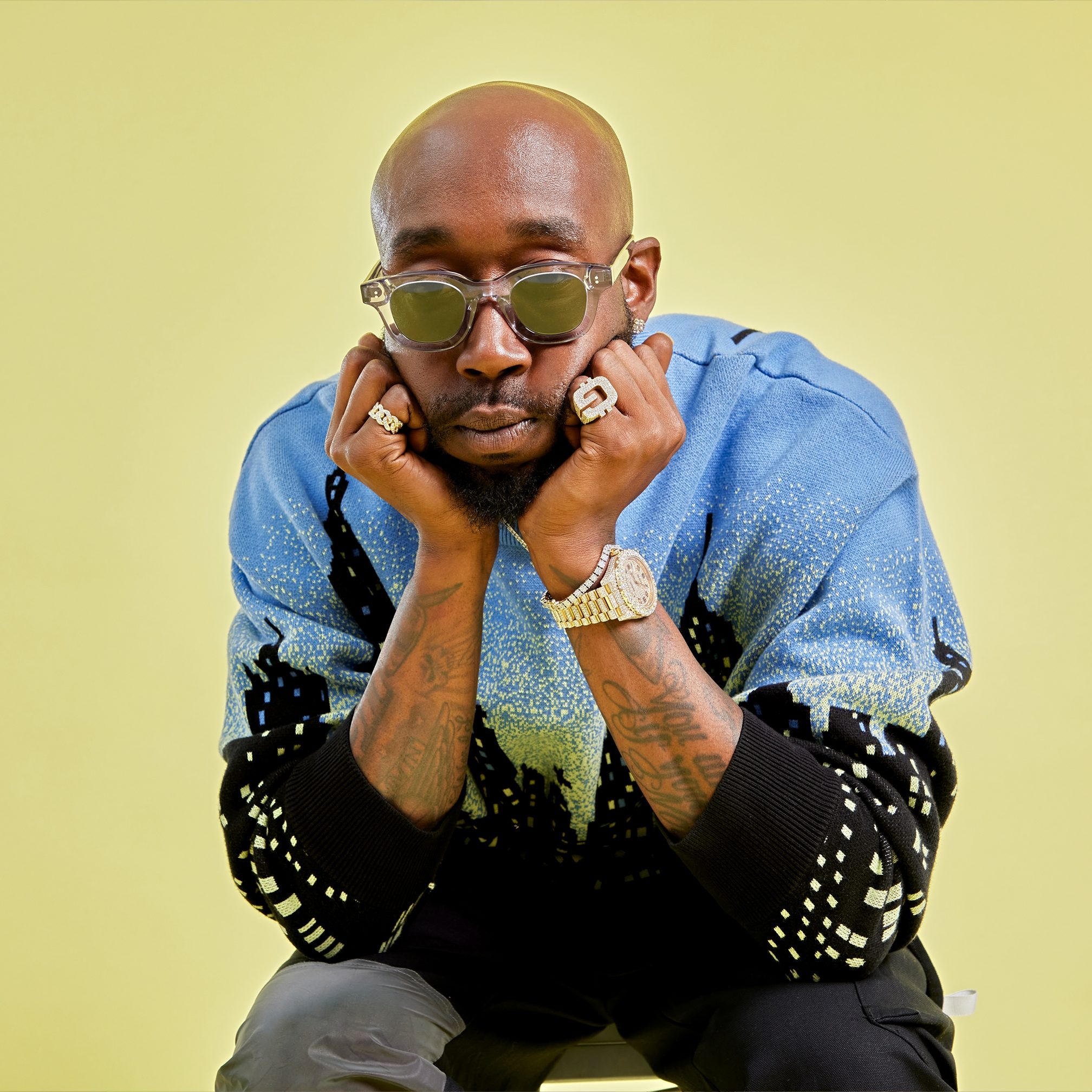
Because of Freddie Gibbs initial 2004 Interscope Records deal souring after being discovered by his now best friend/manager Ben “Lambo” Lambert — he failed to score a formal project release under the label before he was dropped half a year later — this ultimately ushered Freddie deeper into the underworld of selling when he returned to California, after finally being persuaded by the late Josh the Goon (Josh Fadem), and continued through the '10s. For the first time since we began speaking, Gibbs takes a considered pause. “I ain't far removed from the streets. I probably didn’t stop selling until ‘Bandana’”. To Gibbs, life in the “streets'' never leaves you. For him currently, he still has affiliates involved, but is adamant that as long as the formalities of it aren't in his periphery, he’s content. “It ain't easy to get out. I’m not gonna say things weren’t difficult. But at some point, I knew I didn’t need to do this anymore.”
But like many of the most prominent rappers of all time (see also: Jay-Z, Jeezy, Method Man), Gibbs boldly thrusts his former hustle into booth, easily able at this point to challenge even Pusha T in a competition of who has used the most cocaine-infused references of all time (Gangsta Gibbs would likely win). Freddie Gibbs has even adopted iconographical and lyrical forms of rabbits as an ode to it. He nonchalantly chuckles “I would say so” when asked if his bunny-related verbiage partially references cocaine (it’s also a reference to moving fast and being on the go). On April 3, he released Cokane Rabbit 99, a capsule collection with Los Angeles streetwear brand Carrots, adding further dimensions to his cartoon and animal brand-adoption.
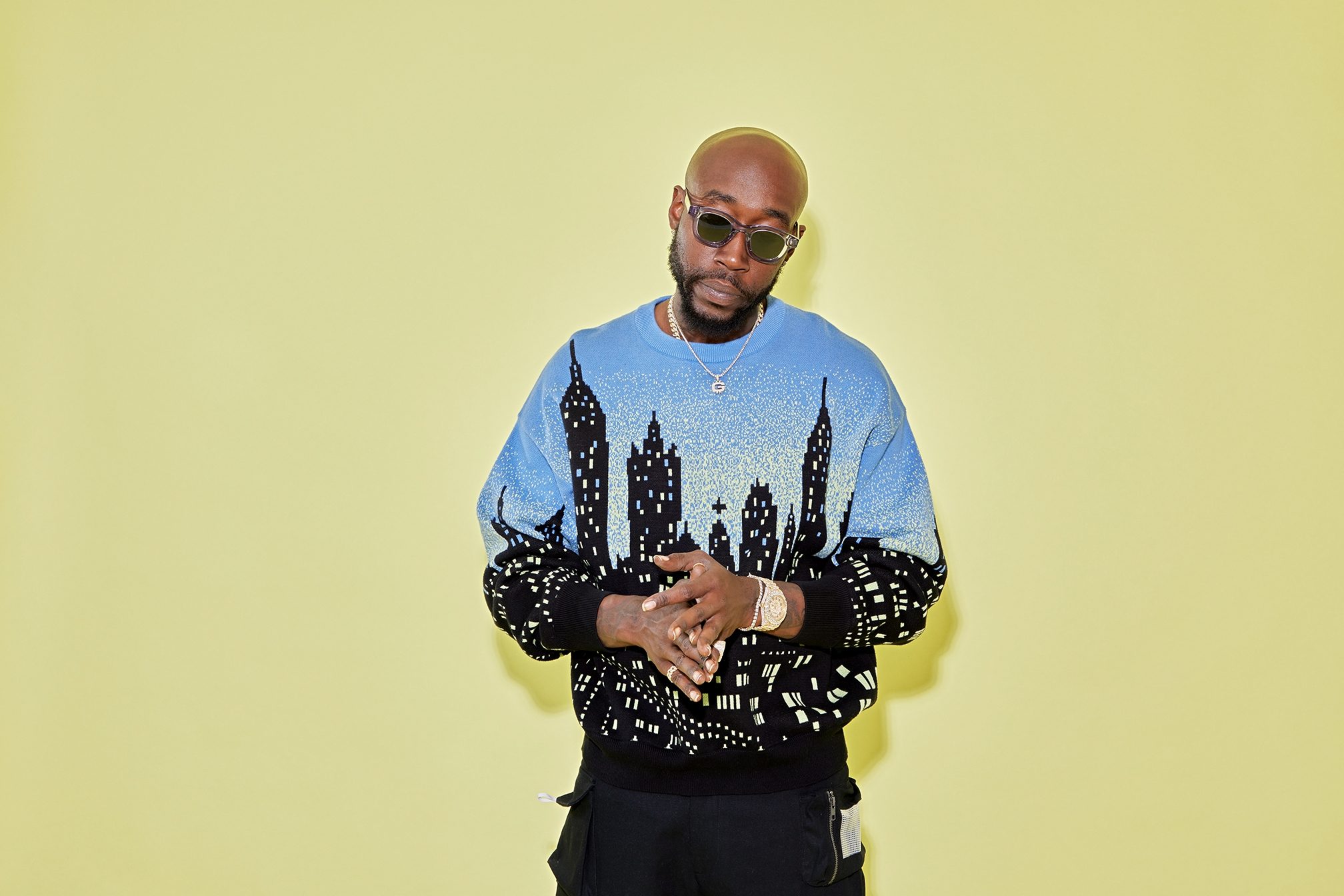
Beyond 'Alfredo', now classic bodies of work such as the Madlib-assisted ‘Piñata’ and ‘Bandana’ are — among other things — gravelly, rapid forms of manifestos, fuelled by an always, self-affirmed and cocky Gibbs in his prime, rapping for his life amongst an abundance of jazz, lo-fi, sometimes even classical audio spaces.
Read this next: 25 early and rare tracks from hip hop's best producers
Madlib and The Alchemist need no introduction of course. As mainstays within hip hop canons (as well as experimental jazz, funk-fusion and electronica for 'Lib), Freddie Gibbs’ critically acclaimed affiliations with both parties are huge milestones for him in his career. With the former veteran, Gibbs has even gained his own moniker, which is one of a very limited few. Dubbed MadGibbs, the title sits amongst Madvillain, the late MF DOOM’s pairing, and Jaylib, J Dilla and Madlib’s collaborative anointing. Still, while showing honour to both artists, Freddie Gibbs makes it known that his bodies of work with Madlib, ‘Bandana’ specifically, reign supreme.
“I think I’m the best ever to rap on a Madlib beat,” he states without an ounce of hesitation nor restraint in his statement. As he realises what he’s just said however, he again shows the utmost respect for DOOM in particular, whom the world formally paid their respects to on December 31 of last year upon learning of his October 31 passing. “Rest in peace to MF DOOM. I feel like he gave me the measuring stick. He set the tone. When I was making 'Piñata', everyone was talking about how he did the best shit and you know the competitor in me wanted to make the better album.”

What followed 'Piñata', five years later, was a leap of faith towards broader soundscapes on 'Bandana' (the inaugural 'Piñata' primarily exists in a 70s' and 80s' jazz and soul-sampled ecosystem); an infusion of trap for example locomotes ‘Half Manne Half Cocaine’ and an incorporation of dancehall and reggae on ‘Massage Seats’ elevates the overall offering, with Gibbs very quickly demonstrating to listeners in 2019 that he’d succeeded on developing his eclectic flair as an MC. His flow further emphasises his arrival as one of the most multi-dimensional rappers to ever touch the mic. Even as the jazz returns on songs like ‘Soul Right’, Gibbs is more reflexive, emphasising a maturity that also appears on Freddie and his post-prison release 'You Only Live 2wice'. “Had to beat my case, I can't turn Irie to a jail baby,” he spits across the ‘Bandana’ closer.
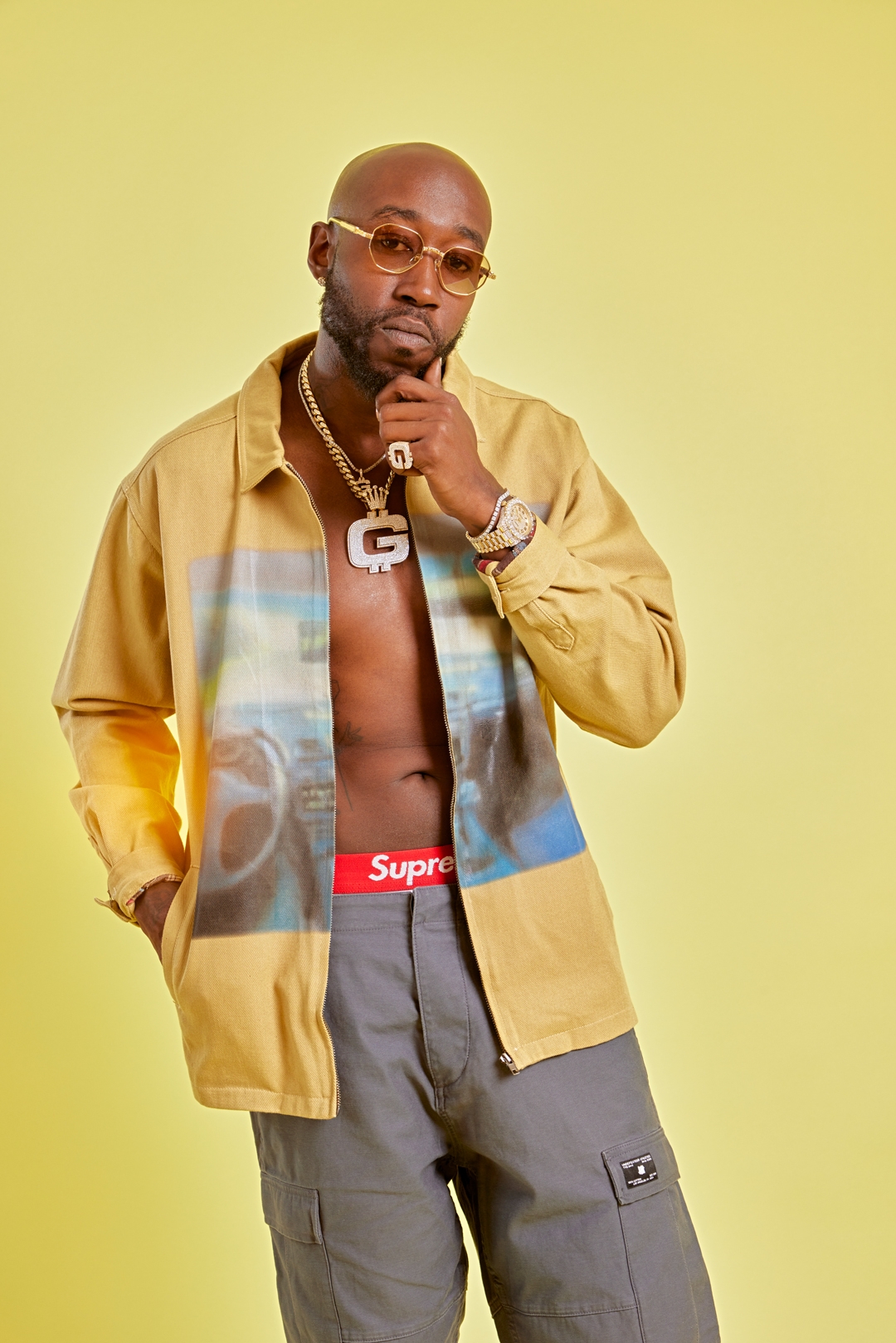
The self-proclaimed ‘Big Boss Rabbit’ (if his latest Nas and Mike Tyson-referenced single is anything to go by) is fuelled by all of his discography to date, he’s quick to list an impressive initial round of producers set to star across the upcoming 'SSS' (he won't reveal what it means just yet) album. “It’s another album of the year. I’m about to go and work with Pharrell next week. Madlib, Working On Dying, The Alchemist, Sevn Thomas, Hit-Boy, I just talked to [Mike Will Made It]. It’s gonna be the best produced album that I ever made.” Gibbs is cognisant of the lane he occupies now — he’s an artist that provides holistic bodies of work. With comrades and hip hop mavens such as Benny The Butcher, Kenny Beats and Ebro Darden routinely emphasising his consistency in the curation domains.
Read this next: The 20 best hip hop diss tracks of the '90s
Outside of sonics, Gibbs is compelled to delve into his artistic storytelling more — he stays abreast with hip hop and its evolution through social media. “When rappers get to 30, some get bored, some aren’t inspired anymore,” he says. But on 'SSS', he’s adamant about staying competitive and shedding more of himself as it pertains to fatherhood, vowing to be transparent on balancing the dynamics of co-parenting as a father Freddie Jr. and Irie. Here, he’s combating ageism in hip hop with wisdom and expertise.
“My kids are a blessing,” he gushes. “But [co-parenting] can be difficult. My son's mother in particular. When you have a baby with someone that’s not in love with you and you are not in love with them, it’s hard.” Freddie Gibbs also shares that he doesn’t believe in monogamy and hasn’t for years. “The women that I had children with don’t even rock with that idea, so it’s hard.” Gibbs will always be a present father - he vows to that very sternly on our Zoom - but his liberal approach to relationships is a dynamic he’s had to remain transparent about, especially as he enters new encounters with women. “All of this is a life lesson for me. This is all for the children though, but I don’t know if I’m built for conventional relationships.”
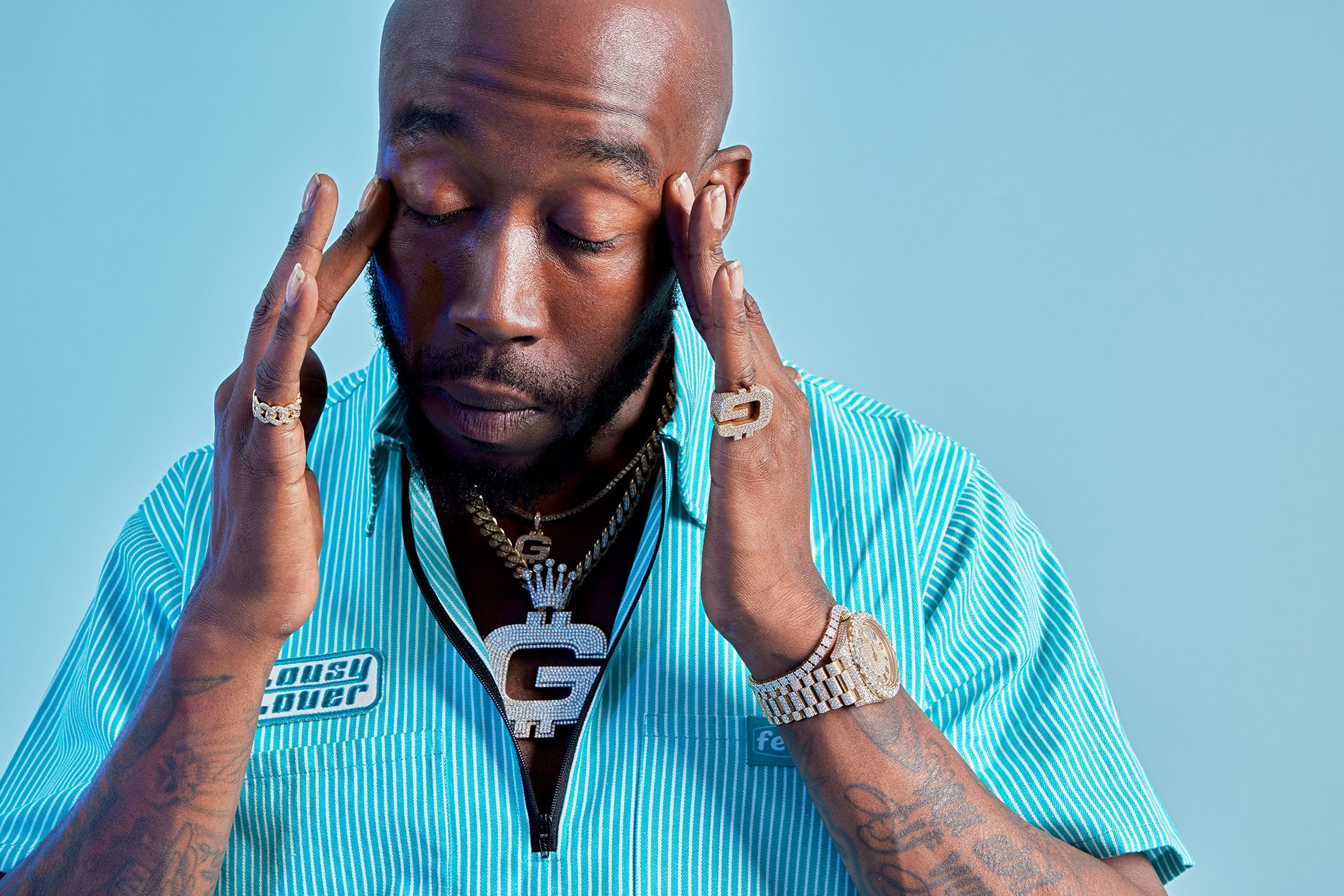
Speaking to Lambo a few days later, he feels like the culmination of years of Gibbs’ attention to detail as it pertains to his identity has helped him reach this point of artistic vulnerability. “He’s become way more confident in himself as an artist,” he begins. “He’s figured out how to make fun of himself, everyone around him and not take anything too seriously. How to be vulnerable on records. He’s effortless at this point when it comes to just being Freddie Gibbs: the artist.”
On March 31, 2019, Nipsey Hussle, an integral part of the Crenshaw community, was shot and ultimately died moments later. Ruminating on this same day, two years later, Gibbs and I take a moment, digitally, to tribute the fallen contemporary, who also stood side-by-side with the Gary-native on the 2010 XXL Freshman cover, pre-empting both of their eventual claims to mainstay status. There are many dualities between the esteemed rappers, from the complex interdependencies of life after dark, to their multiple mixtape runs. Both Gibbs and Hussle were known to the streets of LA and to the cult hip hop communities nationwide during their respective ascendances to fame.
“With [Nipsey Hussle] that was so scary. To be at such a height of your career,” Freddie Gibbs sighs, clearly taken aback by the loss 24 months later. “We’re gonna keep thuggin’ it out for him though.”
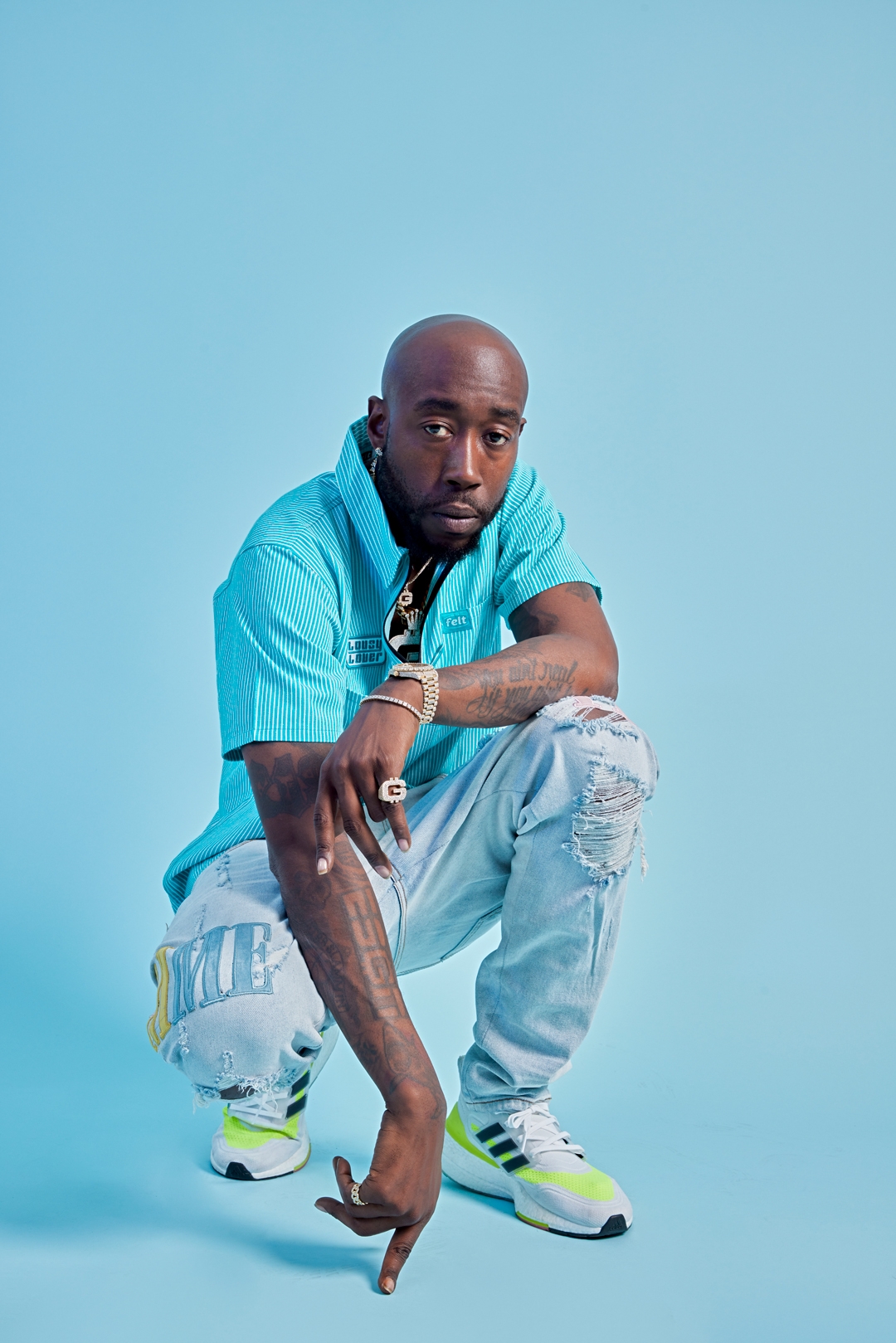
As Gangsta Gibbs, Freddie Kane, and all of the other pseudonyms used to quantify Freddie Gibbs in 2021 continue to inform his trajectory, and as him and long-term partner, manager and best friend Lambert re-embrace the corporate label machine — this time under Warner Music — it feels as though Gibbs is finally leveraging his 15 plus year game of labour as a renegade. He didn’t need the number one single, he didn’t need the box office debut numbers.
“We started our journey together at Interscope in 2005, but felt like that chapter of our story was left unfinished,” Lambo says in relation to their 2020 Warner Music deal. “The game is way more adapted to the artist now. As long as we can express our ideas and visions, for us, it’s just a matter of having a great team and budgets to help bring those things to life.”
At this point in time, industry politics doesn’t matter as much. Gibbs with his legion of fans across the world, his sharp ear for production and both old and new guards onside — all of which have been built independently — at his side is more than armed for a triumphant extension of what has already been a fruitful, meaningful career. “Re-signing to a major is a fuck you to people who own this,” he concurs. “Now we get to do this on our own terms. [Interscope] gave me the worst deal ever. Now, I dictate what I wanna do to a label, because I’m Big Boss Rabbit.” And once again, he flashes a grin, his full set of pearly white teeth radiating across the screen.
Nicolas-Tyrell Scott is a freelance music and culture journalist, writer, critic and podcast host, follow him on Twitter
Read this next: A new book celebrates over 100 women in hip hop


